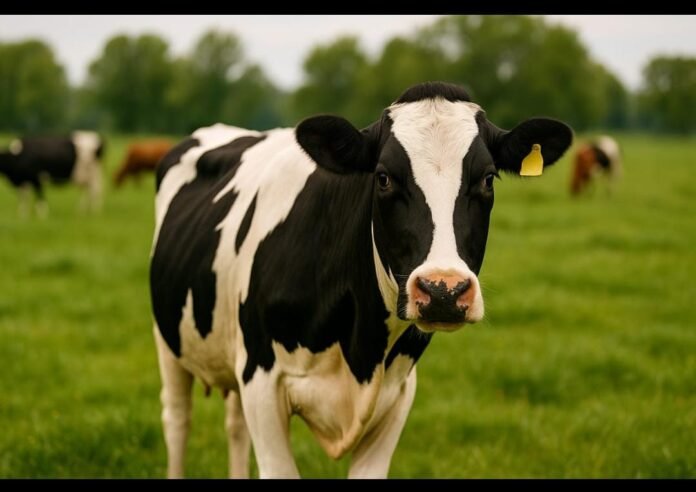As the August 1 deadline set by US President Donald Trump approaches for closing high-value international trade agreements, India and the United States find themselves at an impasse, surprisingly, over milk.
India has refused to allow dairy products from the United States that do not meet its religious and cultural standards. The primary concern is what is being termed as Non-Veg Milk. It is obtained from cows fed animal-based products, such as meat, blood, and tallow.
According to reports, US cattle feed often contains animal by-products such as fish meal, pork, and rendered fats, unusual practices that are opposed to traditional dairy values of India, where cows receive a strictly pure veg diet.
A 2024 report by the Seattle Post-Intelligencer highlighted that American cows likely consume protein supplements made from animal sources, including pigs and horse blood. This point is raising concern in nations like India, where dairy is not just seen as a nutritional commodity but a cultural cornerstone.
India’s Department of Animal Husbandry and Dairy has emphasized on rigid veterinary certification, asking for assurance that dairy products come from cows that have not been fed animal-derived feed. This demand has been termed by the United States as an “unnecessary trade barrier,” with the matter now raised before the World Trade Organization (WTO).
“Milk is not just a food in India. It’s a significant part of religious rituals and sacred ceremonies,“ said Venugopal Naidu Puvvada, Trustee and National Coordinator- Tech and Innovation, Rashtriya Gau Sevak Sangh (RGSS). “When cows are fed on non-vegetarian remnants, the sanctity of milk is lost. It’s not about trade issues, but it’s a matter of cultural sovereignty.”
Economic concerns are likely to compound the matter. The dairy sector of India is dominated by small as well as marginal farmers, who could face serious setbacks if low-cost American dairy products enter the market unchecked. A recent State Bank of India report indicated that the Indian dairy industry could lose up to ₹1.03 lakh crore annually, severely impacting local producers.
Farmer groups have even raised their voice and echoed their fears. “We are not against trade, but we want fair trade. Our livelihoods are at stake, “said Mahesh Sakunde, a dairy farmer from Maharashtra.
Despite mounting US pressure and WTO involvement, Indian officials have reiterated that there won’t be any compromise on dairy standards. A senior trade official told India Today, “There is no question of conceding on this front. Cultural values are non-negotiable.”
As both nations eye a $500 billion trade goal by 2030, the dairy debate has emerged as a symbolic and substantive hurdle. With India standing firm and the US seeking market access, the question remains: Can global trade respect cultural values?



